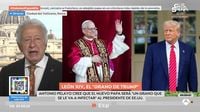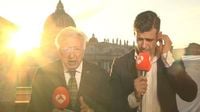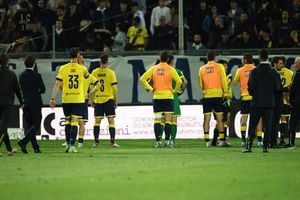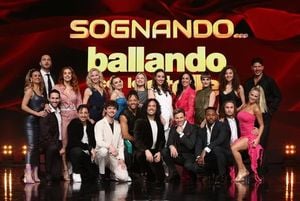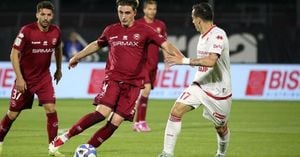On May 8, 2025, the Vatican made history with the election of Robert Francis Prevost Martínez as Pope Leo XIV, marking a significant moment in the Catholic Church as he became the first American and first Augustinian to hold the papacy. The announcement came at 18:08 local time, as white smoke billowed from the Vatican chimney, signaling the selection of the 267th Pope. This event has generated a whirlwind of reactions, particularly from political figures and media commentators.
Antonio Pelayo, a well-known Vatican correspondent for Antena 3, offered his insights during a live broadcast shortly after the announcement. He characterized the new Pope as 'the least North American of all North Americans,' emphasizing Prevost's extensive life experiences outside the United States. Pelayo stated, "I think there are two or three things that clearly define him: he is pragmatic, charismatic, and a little elusive." These descriptors set the tone for the discussions surrounding the implications of Prevost's election.
Pelayo's comments gained traction, particularly his colorful metaphor regarding former President Donald Trump. He remarked, "Trump has gotten a pimple, a pimple that will probably get infected," suggesting that Prevost's leadership could pose challenges for Trump in the political arena. This statement highlighted the potential for tension between the new Pope and the former president, given Prevost's progressive stance and history of criticism towards Trump.
Prevost, born on September 14, 1955, in Chicago, has a diverse background that includes Peruvian nationality and Spanish ancestry. His mother is of Spanish descent, and he has spent significant time in Peru, where he lived for two decades. This cosmopolitan lifestyle has shaped his worldview, making him a figure who bridges cultures and languages. Notably, during his first address from the Vatican balcony, he surprised many by speaking in Spanish, a nod to his heritage and the significant Spanish-speaking Catholic community.
As the Superior General of the Augustinians, Prevost traveled extensively, visiting various countries and engaging with different cultures. Pelayo noted that Prevost spent more years outside the United States than within it, which contributes to his cosmopolitan intellectual background. He argued that this global perspective is essential for a Pope, who must be open to all people, regardless of their beliefs.
Prevost's election has sparked discussions about the future direction of the Catholic Church. He has expressed a desire for a 'synodal Church' that is both missionary and welcoming. His vision includes building bridges of dialogue and fostering unity among diverse communities. In his inaugural address, he thanked Pope Francis and called for peace, emphasizing the need for a Church that reaches out to all, including non-believers.
The implications of Prevost's election extend beyond religious matters. Political analysts are keenly observing how his leadership will interact with global political figures, particularly Trump. Pelayo's comments suggest that there may be friction, as Prevost's progressive views could clash with Trump's more conservative stances. The former president expressed pride in having an American Pope, but the nuances of their relationship remain to be seen.
Prevost's academic credentials are impressive, with degrees in Mathematics, Divinity, and Canon Law. His doctoral thesis focused on the role of local priors within the Augustinian Order, showcasing his deep understanding of Church governance. His past roles, including his recent appointment as prefect of the Dicastery for Bishops, have equipped him with the experience needed to navigate the complexities of the papacy.
As the new Pope, Prevost is also the youngest leader of the Catholic Church since Pope John Paul II. His election was met with jubilation from thousands gathered at St. Peter's Square, who celebrated this historic moment. Pelayo, reporting live, conveyed the excitement and emotion of the crowd, reflecting the significance of this transition in leadership.
Prevost's election brings a fresh perspective to the papacy, one that is rooted in a global context. His experiences in various countries and cultures may influence his approach to issues such as social justice, immigration, and interfaith dialogue. The Catholic Church, under his guidance, may aim to be more inclusive and responsive to the needs of its diverse followers.
In the days following his election, analysts and commentators will continue to dissect the potential impact of Prevost's papacy. His relationship with Trump and other political leaders will be scrutinized, as well as his ability to unite a Church that faces numerous challenges, including declining attendance in certain regions and internal divisions.
As the world watches, Pope Leo XIV's leadership style and decisions will undoubtedly shape the future of the Catholic Church. With a commitment to being a universal leader, Prevost's tenure may usher in a new era for the Vatican, one that embraces diversity and fosters dialogue among all people.
In summary, the election of Pope Leo XIV represents a pivotal moment in the history of the Catholic Church. With his unique background and vision, Prevost has the potential to redefine the papacy and address the pressing issues of our time.
